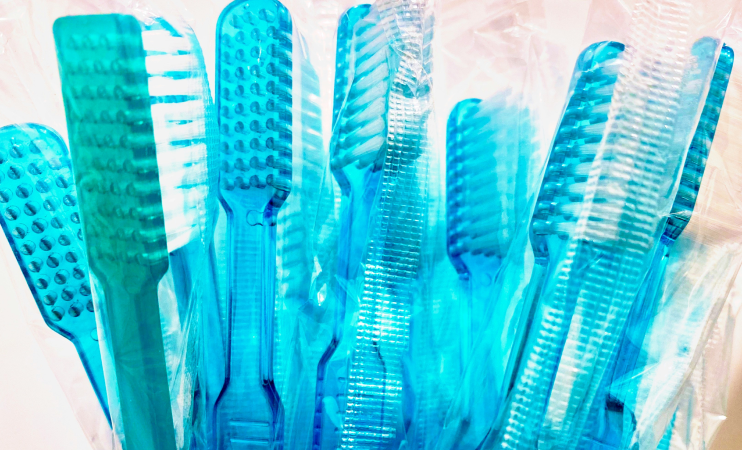
Can Mouthwash Replace Brushing Your Teeth?
Share
Oral hygiene is crucial for maintaining overall health, and it’s a common question whether mouthwash can replace brushing your teeth. With the variety of oral care products available, understanding their roles can help improve your dental routine. In this comprehensive article, we will explore whether mouthwash can be a substitute for brushing and the best practices for maintaining optimal oral health.
Understanding the Importance of Brushing
Brushing your teeth is a fundamental part of oral hygiene. It involves mechanically removing food particles, plaque, and bacteria from the surface of your teeth and gums. Plaque is a sticky film of bacteria that forms on teeth and can lead to cavities and gum disease if not removed regularly. Here are key reasons why brushing is indispensable:
- Mechanical Cleaning: Brushing physically scrubs the surface of your teeth, removing plaque and food particles that can cause decay and gum disease.
- Fluoride Application: Most toothpaste contains fluoride, a mineral that strengthens tooth enamel and helps prevent cavities.
- Gum Health: Brushing stimulates the gums, promoting healthy blood flow and reducing the risk of gum disease.
The Role of Mouthwash in Oral Hygiene
Mouthwash, also known as a mouth rinse, is a liquid product that you swish around in your mouth to achieve various oral health benefits. Mouthwashes come in different formulations, targeting specific dental issues such as bad breath, plaque, and gingivitis. The main benefits of using mouthwash include:
- Freshening Breath: Mouthwash can instantly freshen your breath by killing bacteria that cause bad odors.
- Reducing Plaque: Some mouthwashes contain antiseptic ingredients like chlorhexidine or essential oils that can reduce plaque and gingivitis.
- Remineralizing Teeth: Fluoride mouthwashes can help strengthen enamel and protect against cavities.
Can Mouthwash Replace Brushing?
While mouthwash has several benefits, it cannot fully replace brushing your teeth. Here’s why:
1. Lack of Mechanical Action
Mouthwash does not provide the mechanical scrubbing action needed to remove food particles and plaque from the surfaces of your teeth. Brushing with a toothbrush physically removes debris, which mouthwash alone cannot achieve.
2. Incomplete Cleaning
Mouthwash can reach areas that a toothbrush might miss, such as between teeth and along the gumline. However, it is not effective at thoroughly cleaning these areas on its own. Flossing combined with brushing ensures complete removal of plaque and food particles.
3. Limited Fluoride Exposure
Although some mouthwashes contain fluoride, they do not provide the same level of fluoride exposure as brushing with fluoride toothpaste. Fluoride is crucial for strengthening tooth enamel and preventing decay, and brushing ensures that fluoride is applied directly to the teeth for an adequate amount of time.
Best Practices for Optimal Oral Hygiene
To maintain the best oral health, it’s important to combine brushing with other oral care practices. Here are some tips for an effective oral hygiene routine:
Brush Twice Daily
Brush your teeth at least twice a day for two minutes each time. Use a toothbrush with soft bristles and fluoride toothpaste to ensure effective cleaning without damaging your gums.
Floss Daily
Flossing once a day removes plaque and food particles from between your teeth and along the gumline, areas that your toothbrush cannot reach.
Use Mouthwash Wisely
Incorporate mouthwash into your routine to enhance your oral hygiene. Use a mouthwash that suits your specific needs, such as an antiseptic mouthwash for reducing plaque or a fluoride mouthwash for cavity protection.
Regular Dental Check-Ups
Visit your dentist regularly for check-ups and professional cleanings. Your dentist can detect early signs of dental issues and provide treatment to prevent them from worsening.
Healthy Diet
A balanced diet that is low in sugary and acidic foods can help prevent tooth decay and maintain healthy gums. Foods rich in vitamins and minerals, such as fruits and vegetables, promote overall oral health.
Choosing the Right Mouthwash
When selecting a mouthwash, consider your specific dental needs. Here are some types of mouthwash and their benefits:
- Antiseptic Mouthwash: Contains ingredients like chlorhexidine or essential oils that kill bacteria and reduce plaque.
- Fluoride Mouthwash: Helps strengthen enamel and prevent cavities.
- Cosmetic Mouthwash: Primarily used to freshen breath and may not provide additional health benefits.
- Natural Mouthwash: Made from natural ingredients and can be a good option for those looking for chemical-free products.
Conclusion
While mouthwash is a valuable addition to your oral hygiene routine, it cannot replace the comprehensive benefits of brushing your teeth. Brushing provides essential mechanical cleaning, fluoride application, and gum health benefits that mouthwash alone cannot offer. For optimal oral health, combine brushing with flossing, mouthwash, and regular dental visits.


